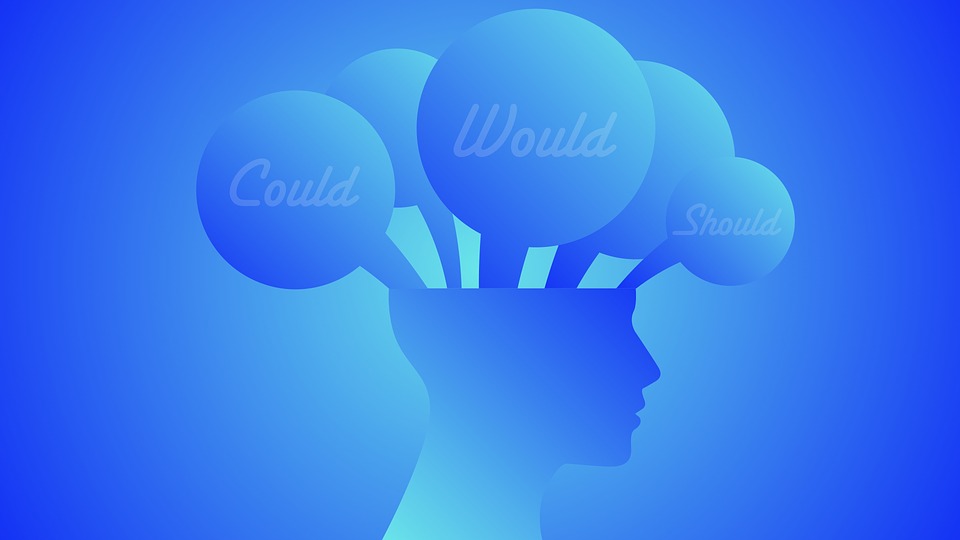A True Underdog Story
It’s not the size of the dog in the fight, it’s the size of the fight in the dog. — Mark Twain

Thus, trial after trial, this blog has striven from humble beginnings to continue fighting the good fight against the external forces trying to keep me from writing it.
Not a bad underdog story for a blog, am I right?
UNDERDOG PSYCHOLOGY
From the classic movie Rudy to the modern day Hunger Games, people love a good underdog story. In sporting events when you don’t have a favorite, who do you root for? When you can get the same product for the same price at a mega-corporation or a small business, who do you choose?

Although a lot of people have defined underdogs in different ways, research suggests there are two defining features: (1) an external disadvantage and (2) passion and determination.
First and foremost, to be an underdog you have to have some kind of external force holding you back. This could be a governmental body or even your own body. However, the odds have to be against you. Additionally, you need to be willing to work hard for what you want. Underdogs don’t have things handed to them; they sacrifice for their success.
But even if you now know what constitutes as an underdog, why do we love them so much?
THE UNDERDOG IN YOU

Importantly, participants were asked how much they identified with each of the companies, and the results showed that participants, on average, personally identified more with the underdog brand. Moreover, the more they identified or felt connected to that underdog company, the more they were willing to purchase products from it!
In other words, we tend to support the underdog because we see ourselves as the underdog. In fact, in another study, the same researchers found that people tend to perceive themselves as greater underdogs than their friends, people of their same ethnic group, their social class, and even those within their country.
But do people everywhere tend to see themselves as the underdog?
THE UNDERGROUND UNDERDOG

In the US, being an underdog is very much the “story of America.” From first rebelling against the technologically and wealthier Britain, to the narrative that anyone can become a millionaire, being an underdog is woven into the American identity.
So although it may feel like people everywhere root for the underdog, in the US, it is particularly salient.
In which case, to all my American readers, definitely continue to see this blog as the true underdog story. And for those reading from other countries, well, just perceive this blog however makes you like it the most ????
Underdoggedly,
jdt
Everyday Psychology: This post focused on the influential power of seeing others or oneself as an underdog. But businesses, too, have picked up on the power of this psychology. For example, if you read company biographies, you’ll often see them tout their “humble beginnings.” Indeed, look no further than Apple, who loves to boast how their empire of a company began in a garage. But can you think of instances where being an underdog wouldn’t increase your likelihood of supporting that company? Or even more, can you think of a time when you wouldn’t support a person or group described as the underdog?
P.S. Even though this week and last week’s blog have come out early Thursday morning, the intention is still to publish these posts on Wednesdays. So, I apologize for the tardiness! Research plus teaching has been taking a lot of time lately.
Kirmani, A., Hamilton, R. W., Thompson, D. V., & Lantzy, S. (2017). Doing well versus doing good: The differential effect of underdog positioning on moral and competent service providers. Journal of Marketing, 81(1), 103-117.
Paharia, N., Keinan, A., Avery, J., & Schor, J. B. (2010). The underdog effect: The marketing of disadvantage and determination through brand biography. Journal of Consumer Research, 37(5), 775-790.








Not saying you should rethink your resolve Jake… But, with way more years ahead of you than behind, I’d say don’t let a blog, or a vow once taken to do a blog, take more than a fair share of your life. Vows… pillar monks come to mind.
And yup, I do like truth. What is it? Got any ideas?
Haha Well thank you for the kind words of support 🙂 As much time as this blog can sometimes take, I definitely appreciate the chance to spread the wisdom of psychology; and–selfishly–I also like the chance to geek out on psychology not in my typical subfield. But your words are taken sincerely. I’m sure there will come a time when I’ll have to skip a week or two, and I won’t let it get to me too much.
As for the truth? Well you and me both are chasing after that one…